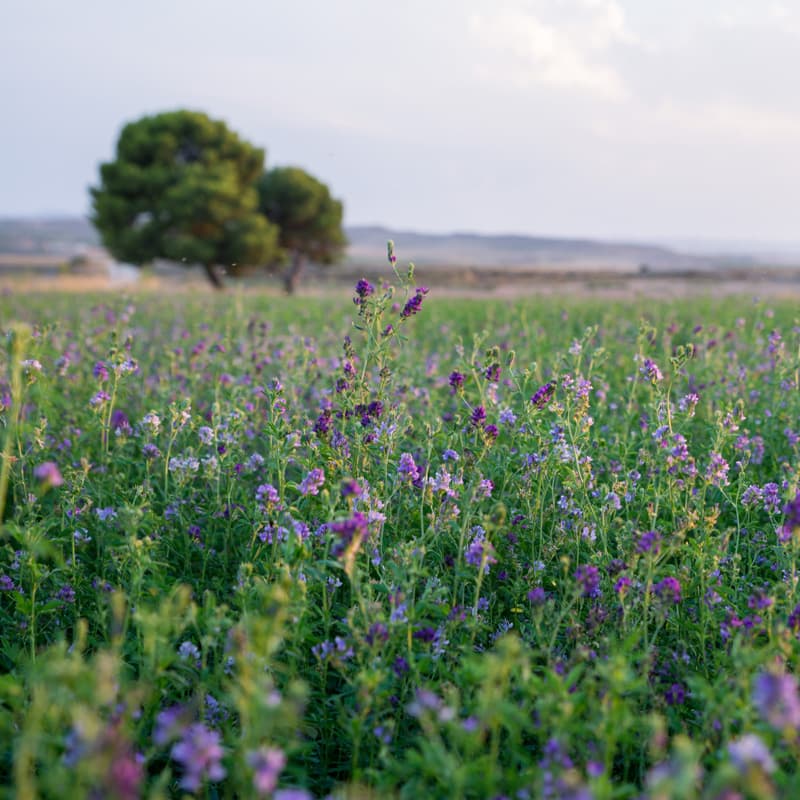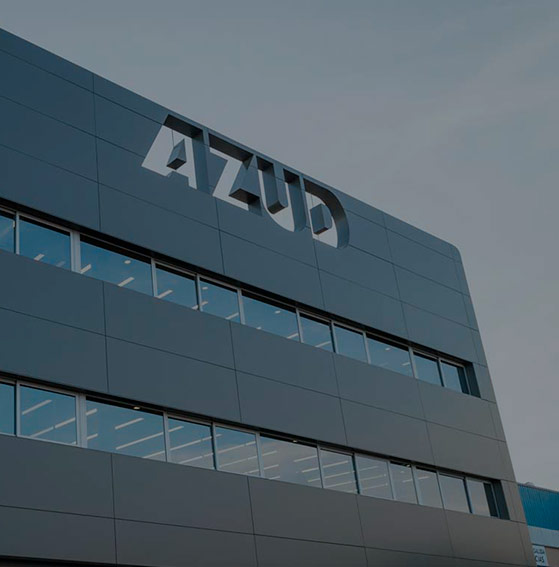

Alfalfa belongs to the legume family and its scientific name is Medicago sativa. It is a perennial, vivacious plant that grows upright. It is one of the most widely grown fodder crops in temperate countries.
Intensive livestock farming, due to its high regular demand for food, has generated a high need for the exploitation of this crop on an industrial level, leading to its further development, the main purpose of which is to supply the animal feed industry. It is also present in other fields and applications, such as landscaping or used as a wildlife conservation crop. The main alfalfa importing countries are Japan, the United Arab Emirates, China and Korea.
Thanks to its extensive experience, AZUD provides the farmer with the most efficient agronomic solution to guarantee higher alfalfa production, taking into account the needs and resources available in each case.
Alfalfa is a species of great plasticity that thrives in semi-arid to humid regions. Solar radiation is a very important factor that positively influences the cultivation of alfalfa.
Alfalfa is adapted to a wide range of temperatures, with some varieties withstanding temperatures as low as minus 10 °C. From 10ºC onwards, production starts to increase, with the most favourable range being between 15 and 28 ºC, depending on the variety.
It requires deep, well aerated soils. Although it is grown on a wide range of soils, it is very sensitive to waterlogging. Soil depths of less than 60 centimetres are not suitable for this crop. Optimum soil should have a high moisture holding capacity, good drainage and be free of compacted layers.
The limiting soil factor in alfalfa cultivation is acidity. It performs best with a pH higher than 6.5. It is demanding in calcium, sulphur and phosphorus. This legume does not grow well on saline or alkaline soils with electrical conductivity of more than 8 mmhos/cm, which reduces production by 50 to 65 percent.
A seedbed that is free of weeds, with adequate moisture conditions, low stubble cover and a firm surface is required.
Alfalfa germinates between 5 and 35°C, although the optimum temperature for germination is around 25 °C. It is important to choose seed with a high physical and genetic quality in advance.
The amount of water used depends on the water holding capacity of the soil, the efficiency of the irrigation system and the depth of the roots.
Alfalfa requires split water management, as its needs vary throughout the production cycle. If the water supply is higher than the needs of the alfalfa, the efficiency of utilisation of the available water decreases. It is morphologically and physiologically adapted to withstand prolonged water deficits, as its roots can penetrate deep into the soil layers.
Alfalfa requires between 700-900 mm of water over the whole cycle.
